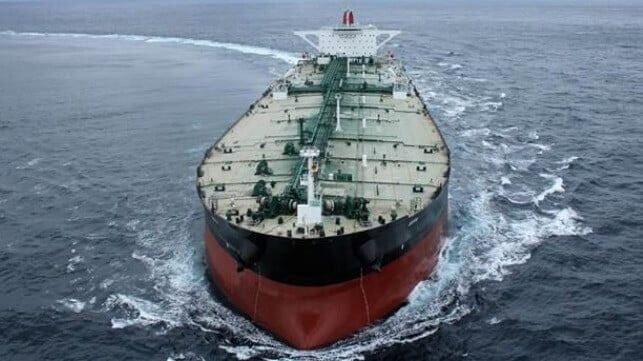EU, UK, and Australia Launch New Sanctions for Russian Energy and Tankers

The European Union announced earlier than planned its 19th sanction package, as Australia also moved to expand its efforts, and the UK added Russian supporters from Georgia. The steps come as Donald Trump has reportedly been pushing the Europeans to cut energy imports, but has yet to introduce further U.S. sanctions on Russia and the shadow tanker fleet.
The President of the European Commission, Ursula von der Leyen, detailed the sweeping package as the next step in Europe’s efforts. She said that “Russia has shown the full extent of its contempt for diplomacy and international law,” citing the increased drone and missile attacks on Ukraine. She noted that even the EU’s office in Kyiv was struck.
In addition, the EU assets that the threats to the union are rising. It pointed to the Russian drones that had violated the airspace of both Poland and Romania. “These are not the actions of someone who wants peace,” said von der Leyen, reporting that Europe was responding by increasing the pressure.
“So we are banning imports of Russian LNG into European markets,” she said in the statement detailing the proposed next phase of the sanctions. “It is time to turn off the tap. We are prepared for this.”
The EU will sanction an additional 118 vessels from the shadow fleet. This will bring its total to 560 vessels, once again surpassing the UK, which recently claimed to have the most tankers under sanction. This comes after the EU lowered the price cap on Russian oil to $47.60.
The EU also proposes a range of other steps, including full transaction bans against Rosneft and Gazpromneft. It is also expanding with sanctions for international refineries, oil traders, and petrochemical companies in third countries, including China, that are dealing with Russia. Additional financial sanctions will include banks supporting the trade and aiding in sanction evasion, as well as, for the first time, the EU proposes restrictive measures on crypto platforms and prohibiting transactions in cryptocurrencies.
Von der Leyen asserted that the efforts have already brought down Russia’s oil revenues by 90 percent. The sanctions, she said, are severely affecting the Russian economy. She cited 17 percent interest rates, high inflation, and declining access to financing and revenues. The efforts still require full approval, while they also noted that the package is aligning with G7 partners.
Australia also responded, announcing it would add another 955 shadow fleet vessels to its sanctions. With these additional listings, the Albanese government will have sanctioned more than 150 shadow fleet vessels since it first sanctions rolled out in June 2025. Australia said it is taking its actions alongside international partners, including the European Union, the United Kingdom, Canada, New Zealand, and Japan, and that it is adopting the $47.60 price cap. Australia also maintains its total ban on imports from Russia of oil and refined petroleum.

that matters most
Get the latest maritime news delivered to your inbox daily.
The UK expanded its sanctions list just a week ago, adding 70 tankers to the restrictions. In total, it has sanctions on 495 tankers versus 440 currently by the EU, which gave the UK the claim that it has now targeted more oil tankers than any other country.
Today’s action by the UK targets two Georgians, a politician and a businessman, who it says are supporting Russia. As part of these efforts, the UK added two small, Russian-owned product tankers to the sanctions. It reports that the Bavly (6,613 dwt) and the Karakuz (6,640 dwt), both flagged in Russia, are transporting Russian oil to the Georgian port of Batumi.
